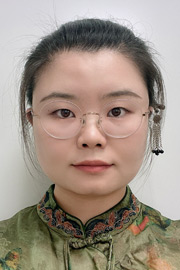The baculovirus–insect cell expression system—insect cells used in conjunction with the baculovirus expression vector system (BEVS)— remains a crucial technology for manufacturing large and complex proteins. This eukaryotic expression system offers inherent safety, ease of scale-up, flexible product design, and versatility for a broad range of proteins.
Could you tell us about the advantages of the baculovirus–insect cell expression system over other expression systems?
Yingmin Zhu
The baculovirus–insect cell expression system offers multifaceted advantages that set it apart from other expression systems. One of the most noteworthy advantages is its capacity to accommodate large DNA molecules within the vector, which enables the production of high-molecular-weight proteins.
This system can house multiple gene insertions, allowing for the concurrent expression of different proteins. These attributes render the baculovirus–insect cell expression system desirable for producing complex and diverse protein products.
Another significant advantage lies in insect cells' remarkable post-translational modification (PTM) capabilities within this system, encompassing essential processes such as glycosylation and acetylation.
These PTMs play a pivotal role in ensuring the proper folding, enhanced stability, and biological activity of the expressed proteins. They empower insect cells to produce proteins with complex structures akin to those obtained through mammalian cell culture.
This critical capability starkly contrasts bacterial and yeast-based expression systems, which either lack or have limited capacity for performing PTMs.
The profound impact of insect cells in performing these modifications cannot be overstated, as it is often the key to achieving the desired biological or therapeutic activity of the protein product, rendering the baculovirus–insect cell expression system a desirable option for the production of functional and biologically active proteins.
The efficiency of the baculovirus–insect cell expression system is impressive. Could you elaborate on its high-density cell culture capabilities?
Amy Sheng
The high-density cell culture capabilities of the baculovirus–insect cell expression system represent a crucial aspect of its efficiency. This system achieves remarkable cell densities, resulting in substantial protein yields.
Such proficiency means it is a highly efficient and adaptable platform for expressing various types of proteins, whether they are intracellular, membrane-bound, or secreted. Furthermore, it is well-suited for large-scale production, enhancing its appeal for industrial applications where high productivity and efficiency are paramount.
Xuejiao Zhang
It is worth highlighting that the versatility of the baculovirus–insect cell expression system extends to the types of proteins it can express, encompassing a wide range of functionalities. Whether it is intracellular, membrane-bound, or secreted proteins, this system offers a robust and adaptable solution for their expression. This versatility and its potential for large-scale production make it an advantageous choice for industrial applications, where diverse protein types are often required.
The safety profile of the baculovirus–insect cell expression system is notable. Could you expand on this aspect?
Yingmin Zhu
The inherent safety advantages of the baculovirus–insect cell expression system are pivotal to its widespread adoption and reliability in protein manufacturing. The viral vectors, known as baculoviruses, employed in this system exhibit a limited host range, primarily infecting specific insects.
Crucially, they are incapable of replicating in mammalian cells, which ensures that the manufacturing process and the final protein product maintain a high level of safety.
This characteristic significantly reduces the risk of potential contaminants and guarantees the production of pure and safe proteins suitable for various medical, research, and industrial purposes. In essence, the safety profile of the baculovirus–insect cell expression system is a cornerstone of its trustworthiness and continued prominence in protein manufacturing.
This system addresses important needs. Could you discuss the market demand for insect cell-based expression systems?
Xuejiao Zhang
The market demand for insect cell-based expression systems remains substantial and is poised to persist into the foreseeable future. This is primarily attributed to the complexity of therapeutic protein candidates currently in development.
Many of these complex proteins cannot be efficiently produced using traditional mammalian expression systems, and bacterial expression systems, on the other hand, are typically unsuitable due to their inability to perform specific critical PTMs necessary for proper protein folding and function.
Amy Sheng
The relevance of insect cell-based expression systems extends to producing viral proteins, including antigens from pathogens such as SARS-CoV-2, influenza virus, respiratory syncytial virus (RSV), and others.
Enzymes, such as kinases, are also effectively produced using this system. Therefore, the demand for such expression systems is driven by the complexity of therapeutic proteins and the need for critical components in areas like diagnostics and vaccine development.
Could you describe the transformative development of the baculovirus–insect cell expression system since its inception?
Yingmin Zhu
The baculovirus–insect cell expression system has witnessed transformative development since its inception in the 1980s. It marked a groundbreaking milestone in adopting insect cells for pharmaceutical protein production when the baculovirus expression vector system (BEVS) was introduced.
This pivotal advancement coincided with establishing standard insect cell lines like Sf9 and Hi5, forming the foundation for the baculovirus–insect cell expression system.
Since its inception, this system has been vital in generating various vaccines, diagnostics, and research reagents. Notably, it has excelled in producing complex and challenging proteins, such as viral antigens, enzymes, transcription factors, and monoclonal antibodies.
Providing access to high yields of adequately folded proteins with essential PTMs has opened new avenues for biotechnologists to achieve their research objectives effectively. As a result, the baculovirus–insect cell expression system continues to be a cornerstone in protein production for pharmaceutical applications.
While this system offers numerous advantages, what are some of the challenges and limitations to consider?
Amy Sheng
One notable challenge is the complexity of glycosylation.
Insect cells cannot perform complex glycosylation, which can be important for specific proteins. However, researchers have addressed this limitation by engineering insect cells to alter their glycosylation pathways, allowing for the production of proteins with more mammalian and human-like glycosylation patterns.
Xuejiao Zhang
Another challenge relates to industry conservatism. The biopharmaceutical industry often favors well-established methods like mammalian cell expression systems.
Proteins expressed in mammalian cells are closer to their native form and are preferred during drug discovery screening. Ensuring the absence of residual insect cell proteins in the final product is crucial for regulatory compliance, which can be a challenge in itself.
Could you tell us about Sino Biological's experience and expertise in baculovirus–insect cell protein expression?
Amy Sheng
Sino Biological stands at the forefront of bioreagents and contract research services industries. We have accumulated deep experience and expertise in baculovirus–insect cell protein expression, which allows us to ensure the development of optimal processes for our customers. Our insect cell expression and production team comprises a large group with advanced degrees and years of experience working with various processes and protein products.
Our approach to projects is comprehensive. We begin by evaluating the target sequence to identify relevant features, such as problematic regions that can be deleted. Moreover, we have developed proprietary serum-free media specifically tailored for insect cell culture.
This supports healthy cell growth to high densities, which, in turn, results in higher protein yields. We leave no stone unturned regarding optimization, addressing variables like virus packaging, transfection reagents, culture and purification conditions, and more.
Our flexibility extends to culture volumes, ranging from 20 mL to 1500 L, to cater to different production demands, allowing for rapid screening of protein production from early-phase development to commercial-scale manufacturing.
How is Sino Biological expanding its capabilities in this field?
Yingmin Zhu
Sino Biological is enhancing its capabilities by establishing a new Houston, Texas facility to better serve its customers and scientific community. This marks a significant milestone as our first manufacturing facility outside of China.
The upcoming laboratories in Houston will form the Center for Bioprocessing, equipped with advanced manufacturing suites and cutting-edge technologies.
This expansion will enable Sino Biological to broaden its research services and bioreagents manufacturing capabilities in the United States. Our core laboratory team responsible for setting up the Center for Bioprocessing comprises experienced scientists and technicians with expertise from both industry and academia.
They aim to drive scientific advancements in next-generation precision medicine therapeutic antibodies and proteins.
*This content has been created in collaboration with Pharma’s Almanac
About the interviewees

Dr. Yingmin Zhu is the head of Sino Biological's new Center for Bioprocessing. He received his Ph.D. in Microbiology from the Chinese Academy of Sciences and completed his postdoctoral training at the Ohio State University. Before joining Sino Biological, Dr. Zhu served as the Director of Baylor College of Medicine's (BCM) Protein and Monoclonal Antibody Production Core and as an assistant professor for BCM's Department of Molecular and Cellular Biology.

Dr. Amy Sheng is the head of CRO Program at Sino Biological. Amy joined Sino Biological’s North America Contract Research Organization team in 2021. She has a Ph.D. in Molecular and Cell Biology from the Georgia Institute of Technology, and is an ASCP-certified molecular biologist and ASQ-certified CSSGB.

Dr. Xuejiao Zhang is an R&D project manager at Sino Biological. She is mainly responsible for CRO services, development and optimization of recombinant protein products, and has rich experience in the expression and purification of recombinant proteins and recombinant antibodies. Prior to joining Sino Biological, Dr. Zhang received her Ph.D. in Biophysics from the Institute of Biophysics, Chinese Academy of Sciences.
About Sino Biological Inc.

Sino Biological is an international reagent supplier and service provider. The company specializes in recombinant protein production and antibody development. All of Sino Biological's products are independently developed and produced, including recombinant proteins, antibodies and cDNA clones. Sino Biological is the researchers' one-stop technical services shop for the advanced technology platforms they need to make advancements. In addition, Sino Biological offers pharmaceutical companies and biotechnology firms pre-clinical production technology services for hundreds of monoclonal antibody drug candidates.
Sino Biological's core business
Sino Biological is committed to providing high-quality recombinant protein and antibody reagents and to being a one-stop technical services shop for life science researchers around the world. All of our products are independently developed and produced. In addition, we offer pharmaceutical companies and biotechnology firms pre-clinical production technology services for hundreds of monoclonal antibody drug candidates. Our product quality control indicators meet rigorous requirements for clinical use samples. It takes only a few weeks for us to produce 1 to 30 grams of purified monoclonal antibody from gene sequencing.